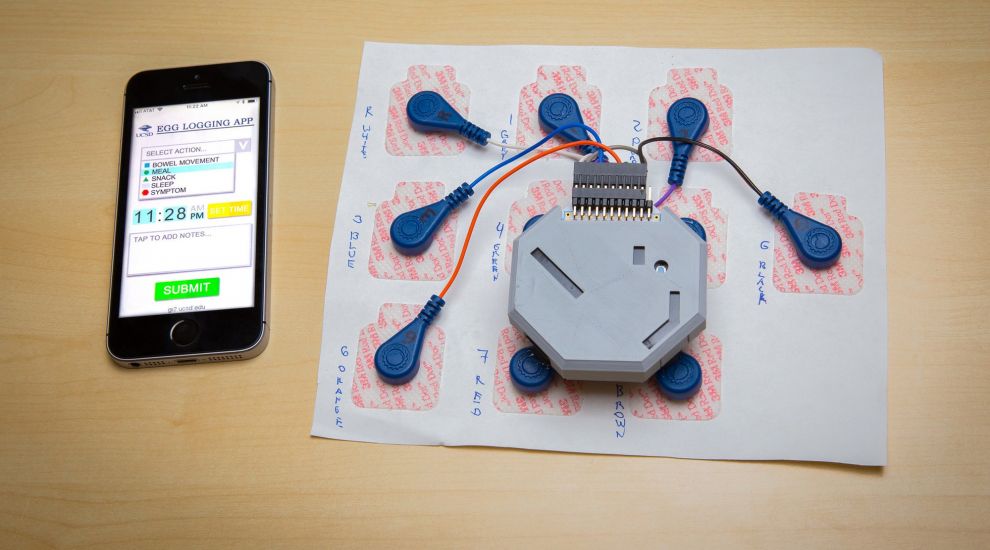
Researchers have a created a wearable device for the stomach that can be used to monitor digestive activity and help spot potential issues.
A team of scientists from the University of California San Diego have built a small 3D-printed box, complete with 10 small electrodes that also attach to the abdomen and can be used to monitor electrical activity in the stomach.
The researchers said the early results from testing show it to perform as well as tests carried out in a clinical setting, and because it comes with an app and can be linked with a smartphone, can be used at home and without any invasive procedures.

Armen Gharibans, the first author of the research paper on the subject and a bioengineering postdoctoral researcher at the university, said the new technology could help speed up the diagnosis process.
“We think our system will spark a new kind of medicine, where a gastroenterologist can quickly see where and when a part of the GI (gastro-intestinal) tract is showing abnormal rhythms and as a result make more accurate, faster and personalised diagnoses,” he said.
Fellow study author Todd Coleman said: “This work opens the door accurately monitoring the dynamic activity of the GI system.
“Until now, it was quite challenging to accurately measure the electrical patterns of stomach activity in a continuous manner, outside of a clinical setting. From now on, we will be able to observe patterns and analyse them in both healthy and unwell people as they go about their daily lives.”
The smartphone app that connects to the system allows patients to log their meals, sleep and other activities to help build up a picture of their general health, combined with the data gathered from the stomach.